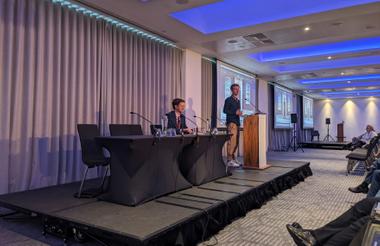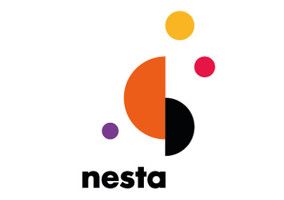Charities should be quicker to adopt the use of artificial intelligence (AI) than they have been with other technologies as it has the potential to transform the sector, delegates at the Charity Finance Summit 2023 conference heard yesterday.
In his closing keynote, James Plunkett, chief practices officer at innovation foundation Nesta, said AI would “transform things in ways we cannot yet imagine, in very profound ways across our economy including across the charity sector”.
He said that charities were “very slow” to embrace the “first wave of the internet and innovation” and missed out on potential benefits as a result.
Charities were ‘very slow to make use of those technologies’
Asked whether there was any “big downside” to AI chatbots such as ChatGPT, Plunkett said that there are a lot of risks, including “inherent biases”, adding that it is important “to be live to them”.
However, he said the risks to charities of not making use of AI were “as big”.
“If you think of the value we left on the table as a sector with the first wave of the internet and innovation, I do think we were very slow to make use of those technologies,” said Plunkett.
“It wasn’t really until, say in the mid-2010s, when truly digital transformation took off in the sector and became central in the way it’s now in all of our organisations. And that was, arguably, 20 years after the technologies became accessible.
“I think we should go in with a very responsible attitude and be thoughtful about the risks of irresponsible, reckless use [of AI], but at the same time not forget there are risks and downsides in not engaging.”
AI ‘will be transformative’
Reflecting on the uptake of new technologies generally, Plunkett said that “there’s often an unexpectedly long lag between a new technology and the social practices that emerge around how we apply that technology”.
He said: “Even though AI is moving at this terrifyingly quick rate in terms of its development as a technology, it will be many years before we realise how to put it to use and how we change our behaviours in order to make use of it safely and in ways that are productive and good for society.”
Plunkett added that “change takes longer than we think it will, even when the tech is fast, and it’s very hard to imagine quite what that change will look like when it finally arrives”.
“One thing is very clear, this is going to be transformative. I’m very much on the side of the debate that says this is going to transform things in ways we cannot yet imagine, in very profound ways across our economy including across the charity sector,” he said.
“The reason being very simple: so much of what we do in charities is about information, organising information, helping people access information and knowledge. It’s about sifting information, using information and knowledge to make decisions and to guide where we do our work and how we do our work. Sometimes we do that alone in our charity, sometimes we do that collaboratively across the sector.”
Related articles












